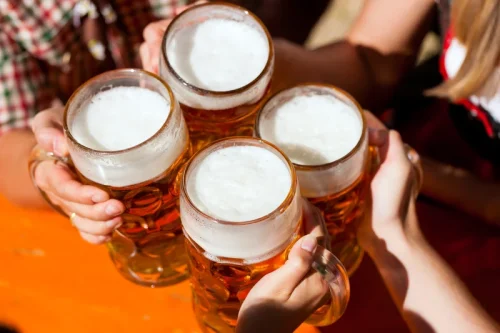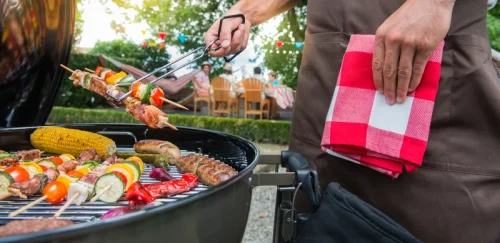“Why Do I Keep Doing This?”: Understanding Our Reasons for Drinking

These statistics remind you that you’re often one bad decision away from completely ruining your life. One way drinkers try to mitigate their fear is through some insurance or self-imposed barrier. They try to drink only a few beers, not text people under the influence or leave their keys with someone to avoid getting behind the wheel. This commitment puts the power back in your hands to decide if you ever want to drink again, but once you experience the great benefits, you probably won’t want to.

Don’t beat yourself up if you relapse

But like all areas of life, it is worth thinking more deeply about drinking and why we do it. There is no one that’s made more of a monster than a woman who is pregnant, who drinks or does something to her baby because she’s absolutely not valued in our society. Deciding to quit drinking can be incredibly difficult. Whether you’re struggling or just want some extra guidance, consider reaching out for support from professionals who are trained in addiction treatment.
Focus on eating nutritious food.
Our brains don’t like imbalance and will work very hard to correct it. That overcorrection is what you’re probably feeling right now. That latter experience feeling like everything is gray and dull and drinking because of boredom lacks meaning? A lot of people experience anhedonia when they quit.
Don’t do what doesn’t work
You will need powerful reasons to stay committed to it; otherwise, environmental and peer pressures will drag you off the wagon. You also need a reason that will help keep you from having relapses, dealing with withdrawal, and staying committed to your goal of sobriety. Strong fears move you away from self-destructive behavior, while a strong why pushes you towards improving your life. Don’t be afraid to admit that you’re afraid of this. One small drink won’t set your progress back too much, but it will be harder to get back on track if you drink yourself into oblivion. Research shows that the majority of people who eventually achieve long-term sobriety have at Substance abuse least 1 relapse.
- You might be afraid of what happens if you keep drinking, but you’re more afraid of what happens when you stop.
- You don’t need to go out and make 100 new friends.
- Before I started drinking too much, I loved to write.
- Negative affect, stress improves, the sort of reactivity to life stressors, to interpersonal stressors.
It also opens up space to approach your internal world differently. One of the biggest impediments to my sobriety during my relapse days was my inability to avoid getting consumed by emotions. But it’s comforting to know that you don’t have figure it out on your own.

#2 Keep a List of Supportive Contacts
I developed a unique framework for getting sober and dealing with vices. Boredom can indeed lead to cravings for alcohol, but it doesn’t have to be this way. With understanding and a few targeted strategies, you can retrain your brain to seek healthier, more fulfilling ways to escape boredom. Consuming alcohol stimulates the release of dopamine, a neurotransmitter that plays a significant role in our brain’s reward system.
- I don’t want to discount the fact that ceremonial alcohol is a drug.
- It became ridiculous to me because it’s a liquid in a bottle.
- That was the thing that absolutely changed my mind.
- I won’t lie to you and say that it’s guaranteed that you’ll have a large support network.
- It’s the fine line at which point a person may cross over from casual drinking into having an alcohol use disorder.
- Dulling our learning centers with a sedative like alcohol makes it much harder to rewire our brains and improve our confidence and comfort in new situations.
You also need a powerful reason that keeps you sober. Our admissions team is available 24/7 to listen to your story and help you get started with the next steps. Every month, we launch fun challenges, like Dry/Damp January, Mental Health May, and Outdoorsy June. You won’t want to miss out on the chance to participate alongside fellow Reframers (or solo if that’s more your thing!).
Some Common Reasons We May Use Alcohol
Watching a friend or family member struggle with a binge-drinking habit can be difficult, even heart-wrenching. You’ll likely be there to witness their most reckless behavior, painful hangovers, and their sense of shame and depression afterwards. If you’re having a hard time shifting your focus from internal to external, consider the quality of your inner self-talk.

